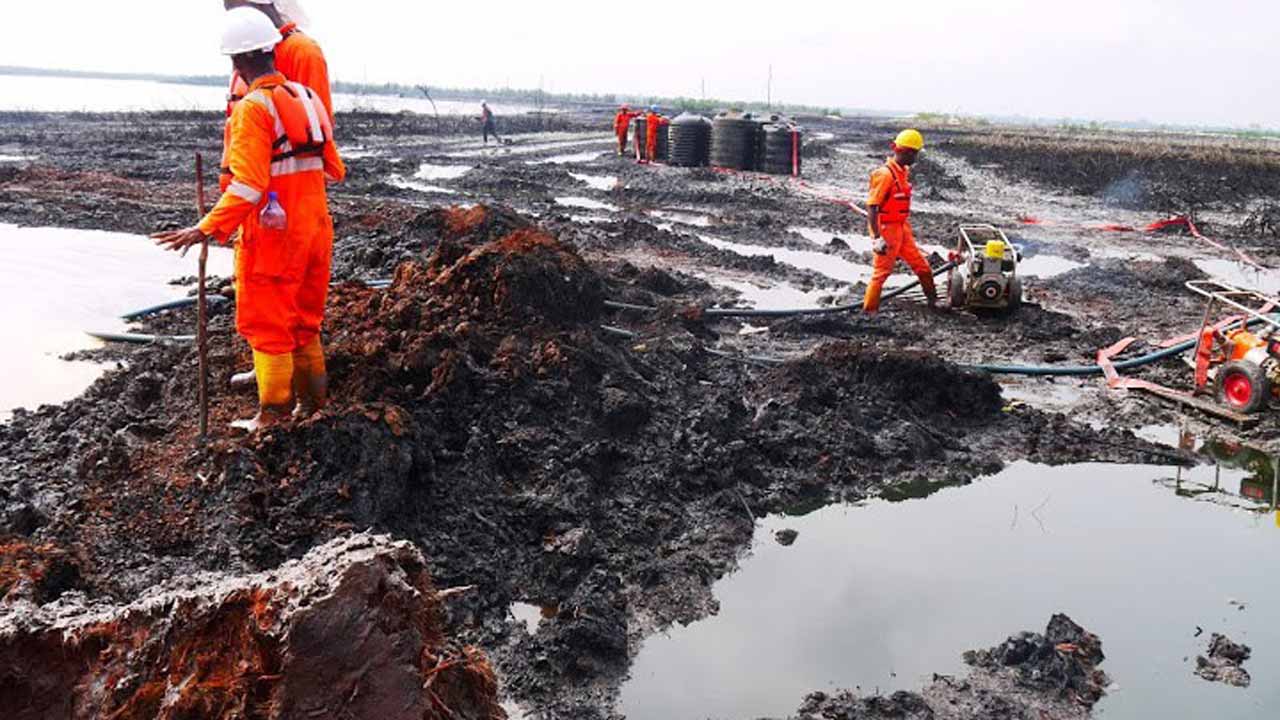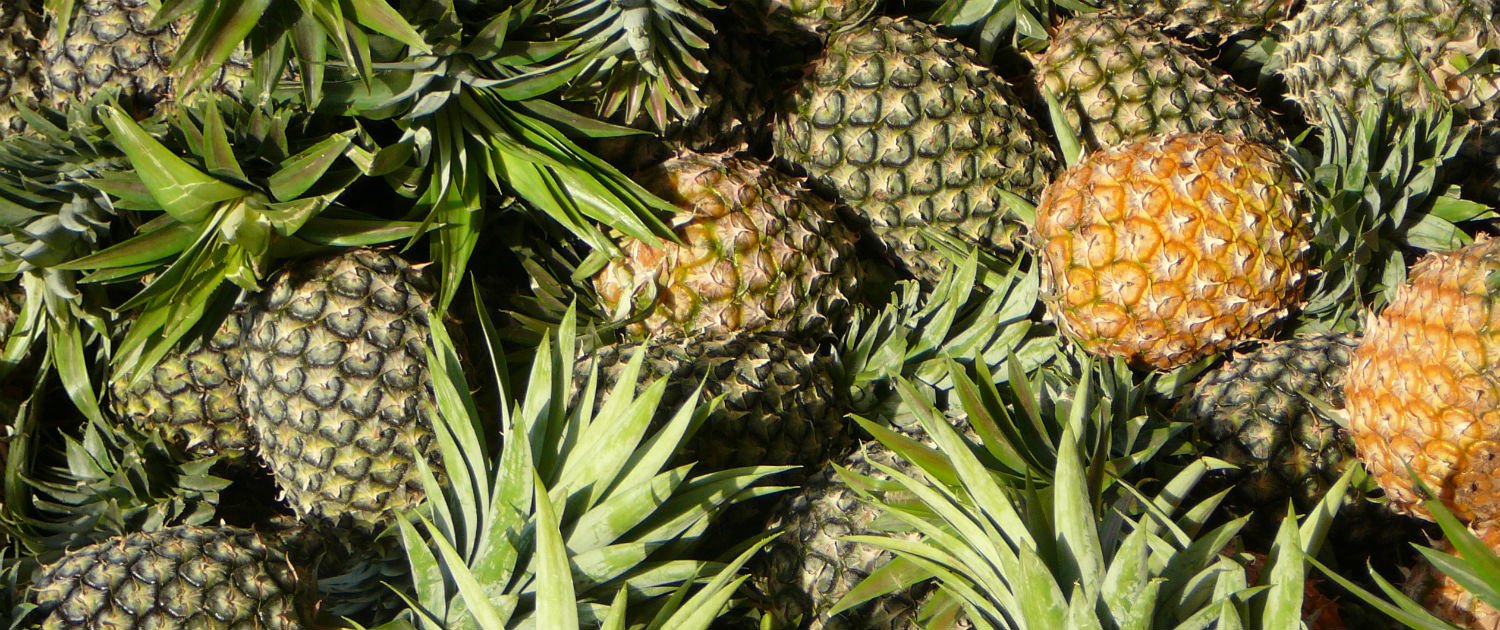
Public-Private Partnership key to ICT Development — Onyeama
May 15, 2017
Friends of the Earth Nigeria urges Governors to set up Labs to Manage Oil Spills
May 16, 2017Most Nigerians and even government are still not looking in the direction of tapping into the yet-to-be fully explored opportunities in the agricultural sector, especially the vegetable and fruit crop sector.
One of those fruit crops that has been generating foreign exchange and creating jobs is pineapple. It has also been contributing to Gross Domestic Product (GDP) of developing nations around the world but Nigeria is yet to explore its full potential.
Globally, world production of pineapple is in excess of $2.7 billion, and Nigeria cannot benefit from or even export its pineapple to the international markets despite ranking number seven in the world’s pineapple production chart with an annual production figure of about 1.4 million metric tonnes. The country is yet to maximise the benefit derivable from pineapple production in the international market.
Daily Sun investigation revealed that countries like Ghana, Cote d’Ivoire, Cameroon, among others, that rank far behind Nigeria in terms of annual pineapple production are exporting the product while Nigeria is still grappling with how to export its pineapples to the international market.
Ironically, in the European Union (EU) alone, the import figure for pineapple is in excess of €600 to €800 million annually. Out of this figure, Ghana controls about 5 per cent of the annual market, Cote d’Ivoire controls about three per cent while Nigeria controls zero per cent.
However, stakeholders berated government at all levels for looking down on pineapple as a perishable item despite having a worldwide appeal and is known for its nutritional and health values all over the world. They blamed government for negligence and inability to export pineapple into the international market, as most pineapples in Nigerian markets are imported from Cotonou and Cameroon.
During a visit to San Carlos Farms (pineapple plantation) at Ihe, Awgu, in Awgu Local Government Area of Enugu State, by the Executive Director and Chief Executive Officer of Nigeria Export Promotion Council (NEPC), Olusegun Awolowo, he observed that pineapple has many by-products some of which Nigeria expends millions of naira, annually to import.
Awolowo, who was represented by the Director, Product Development Department of NEPC, Henry Otowo, said the main cause of Nigeria’s failure to export pineapple is the inability of government to implement policies and programmes in the nation’s development plans over the years.
He explained: “I think it’s lack of implementation of policies all along because if you look at the development plan over the years, from NEEDS to VISION 2010, it’s not the lack of ideas that is the bane of our development, but the lack of implementation or execution of policies that have been enshrined in those development plans.
“In fact, Nigeria has not started maximising the benefits accruable to export in the international market. We believe that San Carlos Farms is now trying to put Nigeria on the export map in order to ensure that not only raw materials are exported, but products processed from pineapple.”
Speaking with Daily Sun, the Chief Executive Officer of Highhill Agricultural Development Centre, Bunmi Sola Adeniyi, said unfortunately, Nigeria doesn’t have enough pineapple for the local market, adding that no nation can export when it cannot meet its local demand.
According to him, pineapple is not one of Nigeria’s core fruits that can be exported because the pineappple varieties in Nigeria are not exportable. He said the latest variety dominating trade in the world is MD2 and Nigeria does not have it locally.
Speaking on how to boost pineapple production, he said: “I think we need to bring in the new variety, which is MD2, because it grows faster and is bigger and sweeter with a lot of flesh and long shelf life. We need to boost the capacity of our farmers all across Nigeria through training, practical empowerment programmes and giving them these sulkers for propagation. From there, we can start multiplication of these sulkers in Nigeria.”
Meanwhile, the Communication Manager of Double Farms Limited, Mr. Kingsley Dudu, said the major reason Nigeria cannot export pineapple into the international market is funding as the country only produce pineapple for consumption and not for export. He said, “these are the two major things involved – funding, mostly, because pineapple farm is very expensive and it takes almost two and half years before one starts harvesting it. Imagine where you put your money for two and half years and you have not seen anything. Government is not supporting you and it is a perishable item.
“There is no means of storage. Nigerians only produces to feed themselves and in terms of using pineapple today, we need a lot of it in our system but because of these two major factors, namely funding and little production, there is a big problem since you cannot borrow money and put it somewhere for two and half years before you start harvesting and government is not helping.”
Explaining to Daily Sun, he said Double Farms has a big pineapple farm sitting on almost 100 acres of land and the the farm is not depending on government or any bank in Nigeria for anything. He said the demand for pineapple is high, and that more farmers must get involved in its production, otherwise, Nigeria will not be able to export it.
He maintained that, “we have a very good species here. The one we are planting in our farm is called Smooth Cayenne variety, which is characterised by high sugar, very tasteful, very good species with good flavour. The problem is that pineapple farming is a very expensive venture and because it is a perishable item, and we don’t even have a company in Nigeria that produces concentrate from it. A lot of things have not been done.
Where you are supposed to use a normal sugar called Dangote, people are now preferring to use pineapple flavour, which is natural sugar.”
Speaking on the way forward, he said it is very important for government to come in because pineapple production is a very expensive venture requiring a large portion of land.
He hinted that, “today, if you plant pineapple and you maintain it, the farm can last close to 50 to 60 years but the problem is that it is not a thing you do on your own. The one you can do on your own is just a small part of it because it takes a lot of money and land is another problem. The only place where you can plant it is either a reserve or somewhere else because you cannot get 100 acres on the way like where you can plant cassava; a 100 by 100, that is why government needs to come in.”
He said government must put things that are needed in place by supporting farmers with the provision of pineapple sulkers and reserve. He said, for instance, that a new farmer who wants to plant and buys sulker for N15 or N20, how many will he be able to afford?
He noted: “Pineapple production requires huge funding so international companies should come in to join hands in growing pineapple in large quantity; we cannot do it alone. There are organisations that are financing this thing but they are not looking at Nigeria because our business environment is very harsh. Government needs to relax certain things or else will be where we are. If they keep on talking year in year out, we will be where we are.”
“Nigeria has fertile land more than Kenya but there is a big pineapple farm in Kenya, which is being sponsored by one organization and they are doing very well because everything they are using is from Germany. Why can’t we replicate such here?”
Culled from: The Daily Sun









